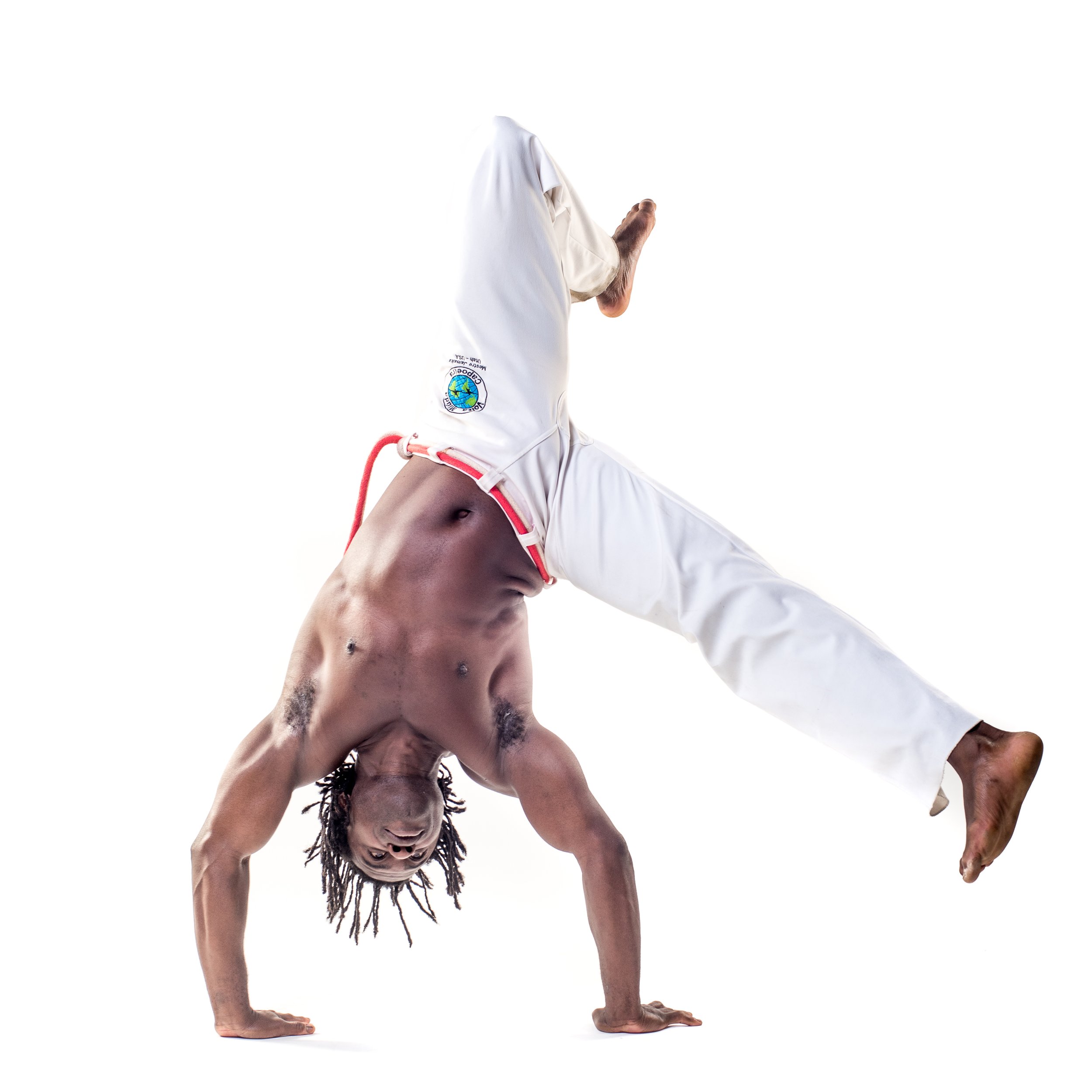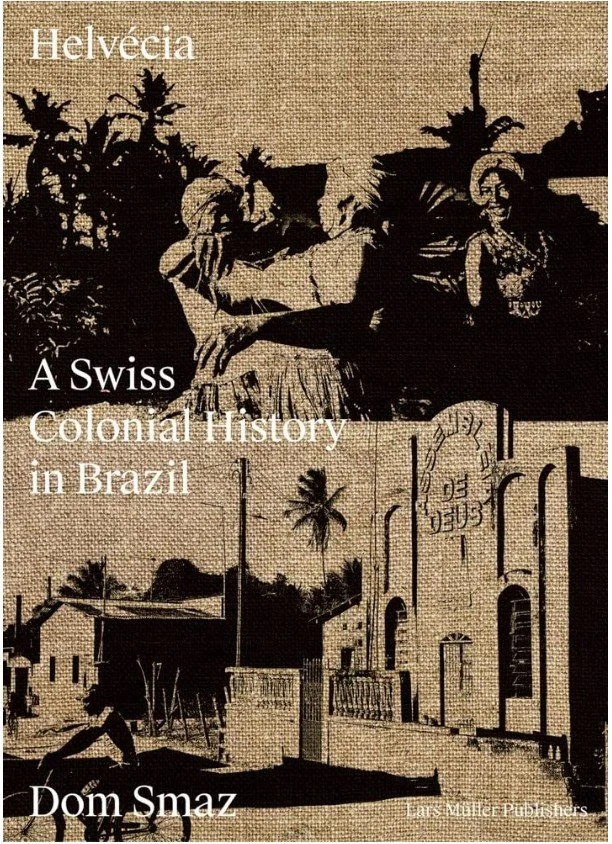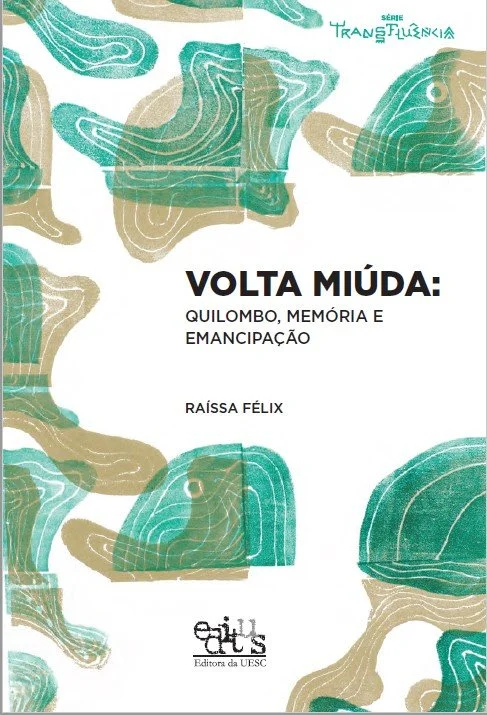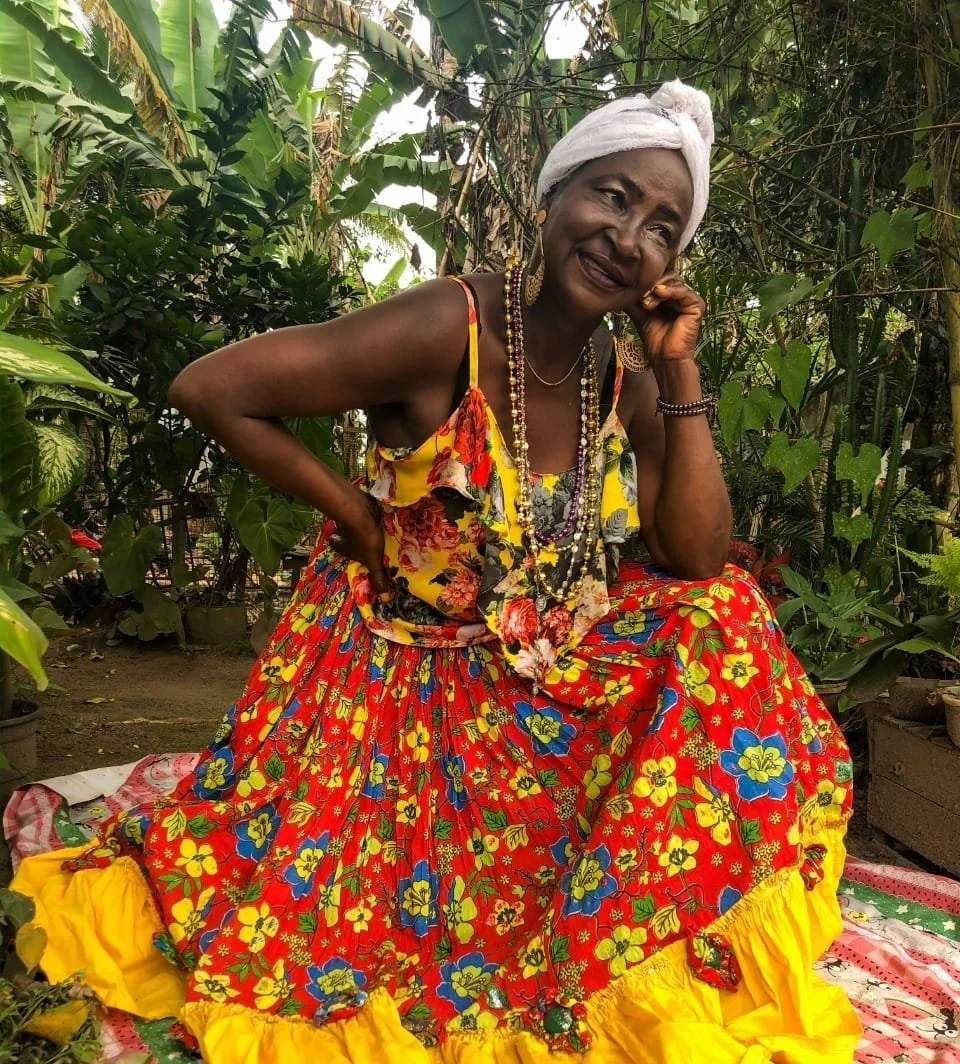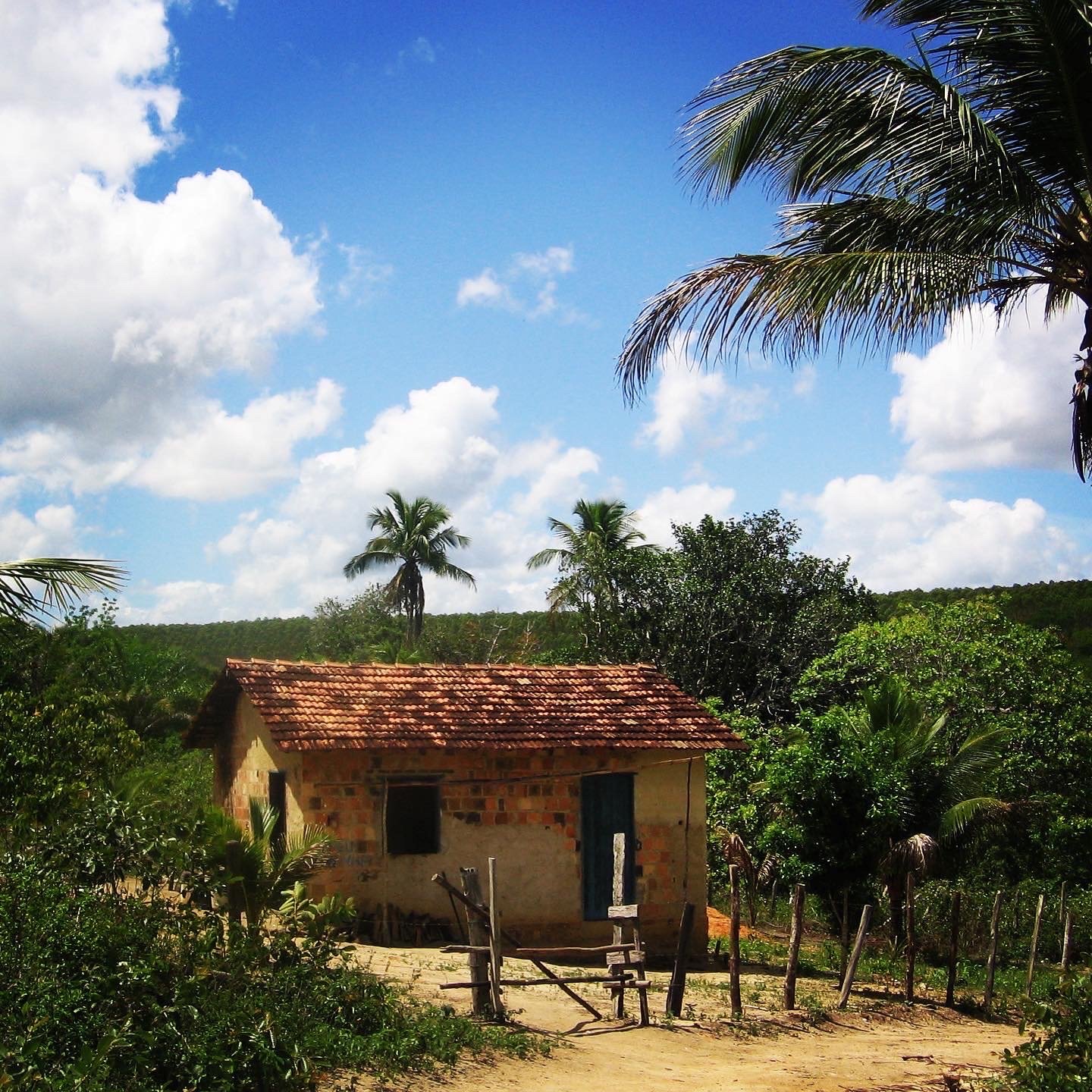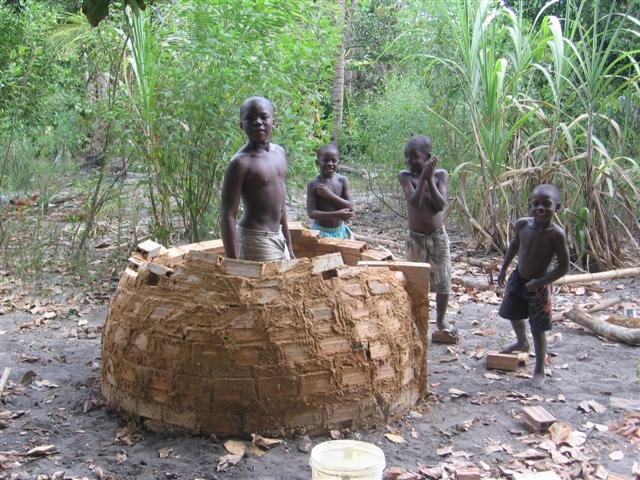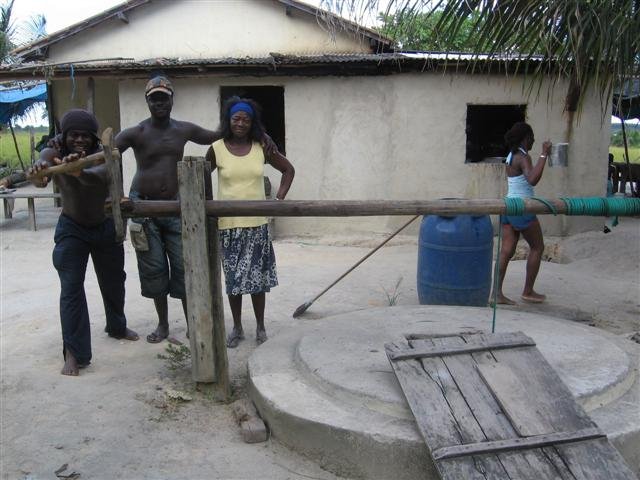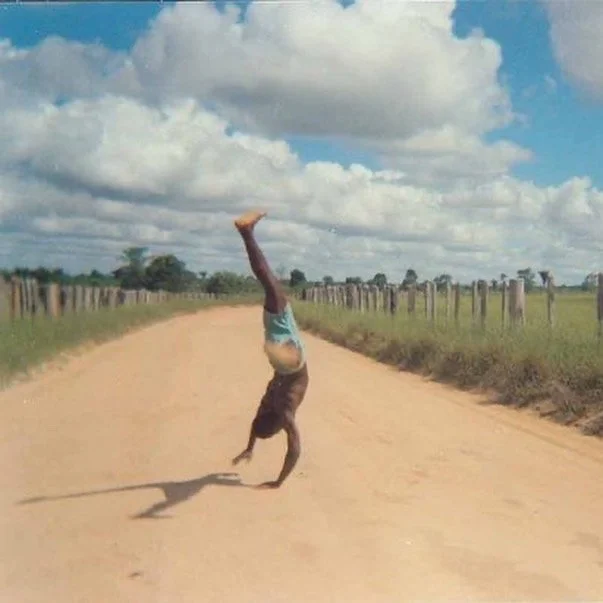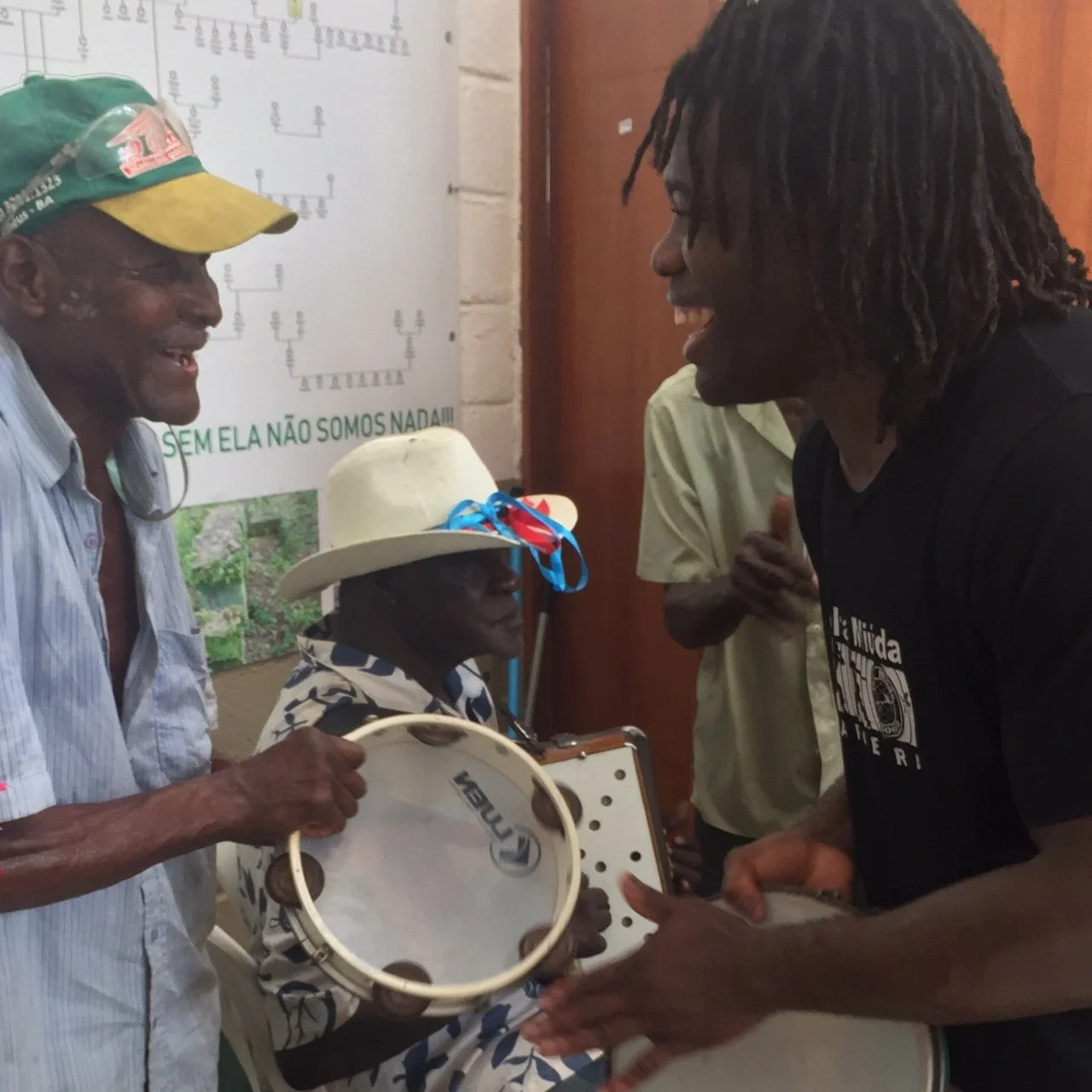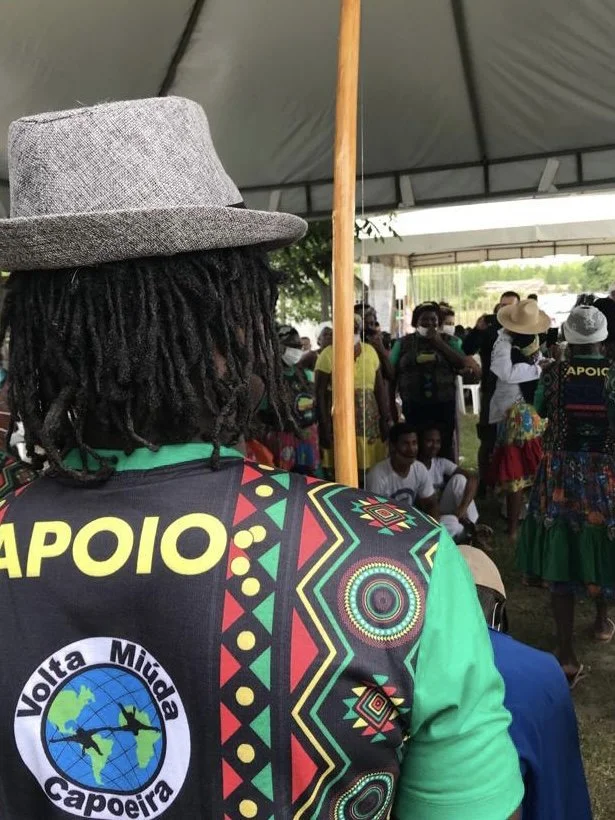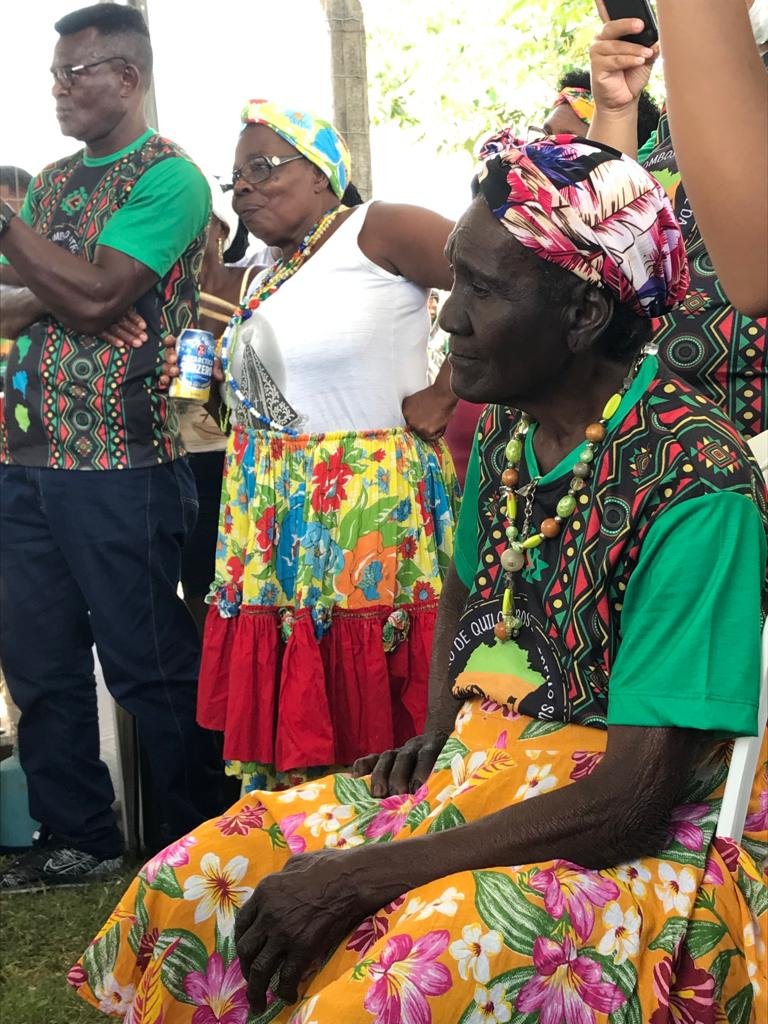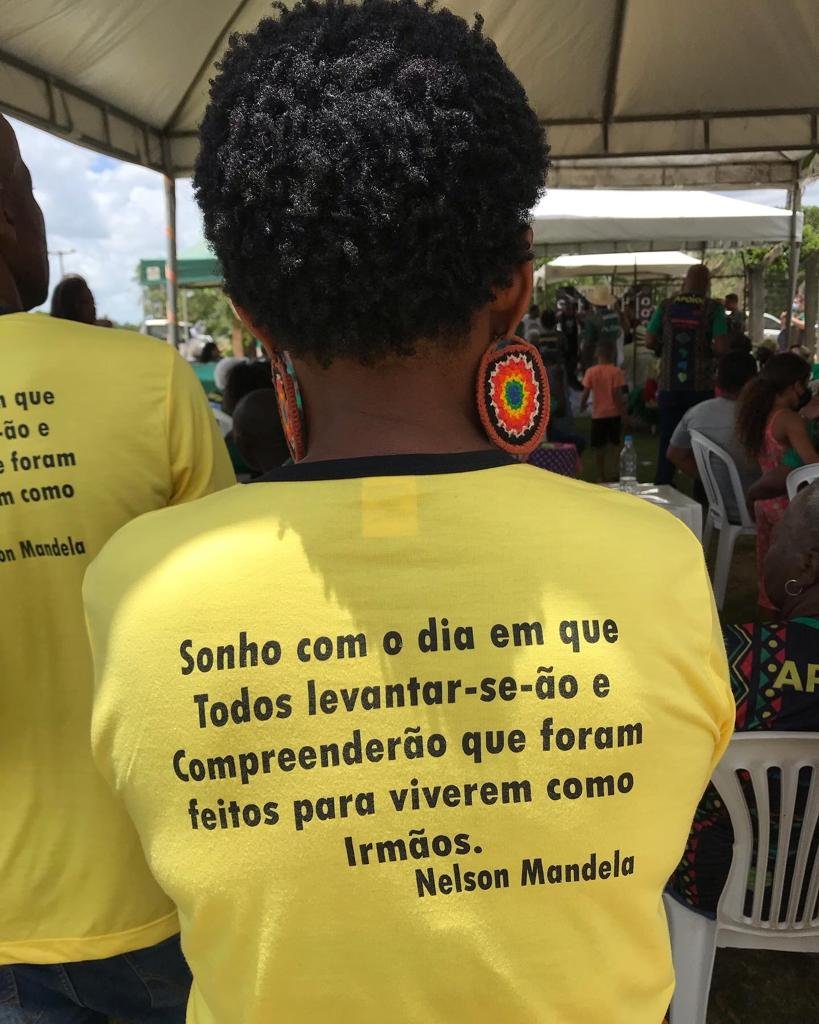Volta Miúda Capoeira
Mestre Jamaika in Bahia, Brazil in the 1980s.
Mestre Jamaika, his mother, and his aunt participating in a longstanding Afro-Brazilian traditional ritual at their Volta Miúda quilombo.
“The literal meaning of Volta Miúda is something like ‘small around’—just like the capoeira roda. The roda is like a small world and what we learn there can help us in the big world. If you fall, you have to keep going because the game never stops, just like life. You always have to stand up, because life won’t wait for you.
When we learn how to bring respect and positivity to the roda, we bring that to the world. And just like the brave people of Volta Miúda who overcame oppression, our Volta Miúda group represents the power we can all have to overcome our own challenges while still celebrating life and the axé it brings.”
volta miúda quilombo and capoeira group
A quilombo is a community originating from a settlement of African-Brazilians who were enslaved. Mestre Jamaika founded the Volta Miúda capoeira group in 2009, named after the region where his family comes from. Volta Miúda lies in a small, rural corner of Bahia, Brazil, the birthplace of capoeira. It’s an officially registered quilombo by the state of Bahia, and continues to thrive with the fusion of African and Brazilian culture. Mestre Jamaika brings his quilombo’s deep Afro-Brazilian roots and tradition into all that he does.
helvécia quilombo
Helvécia is another of Jamaika’s familial quilombos in the same area of Southern Bahia. It was founded in the late 1700s and the thriving region produced coffee with 40 farms. It was home to 2,000 African-Brazilians and 200 white settlers, including their enslavers.
giving back
Mestre Jamaika’s grandparents were farmers in these quilombos of rural Brazil, and his grandmother was raised by her grandmother who had been enslaved in her lifetime. His parents grew up farming to help their families survive and were not privileged to get an education. While they didn’t learn to read, they learned the secrets and power of their land and its natural herbs and medicinal remedies. While his family was rich in culture and love, he grew up in poverty without basic necessities like plumbing, electricity, and sometimes even food. This life experience informed his life’s purpose.
As a child, capoeira empowered Jamaika and helped him gain respect in a world made to reject him. From the beginning, his inspiration and drive was to help his family and his people—which he did from a young age as he earned money performing and teaching capoeira. As he shared capoeira with thousands of people around the world, Jamaika witnessed the deep impact that it can have on people’s lives. His purpose today remains the same, and has greatly expanded to honor his ancestors and capoeira’s roots in its fight against oppression and its work for equality.
Over the 25+ years of Mestre Jamaika’s capoeira career, he’s shared his modest income with his people to pay for funerals, medical procedures, repairs needed due to natural disasters, and more. Every time he visits his home, he brings school supplies and backpacks, phones, ipads, laptops, and clothes for the kids from his familial quilombos. He says it’s the least he can do, for a land and people who gave him everything.
If you’re interested in donating items for Mestre Jamaika to bring on his next visit to Bahia, please contact us at saltlakecapoeira@gmail.com.
learn more about these afro-brazilian quilombos,their traditions, & current news:
2023 Annual Meeting
2023 Volta Miúda Cultural Festival Remembering Traditions and Ancestors
Quilombola Communities’ Resistance Against Suzano Company in Bahia, Brazil
Exhibition: Helvécia. A Forgotten Colonial History
The Helvécia Community of Brazil
From the National Farmer’s Union of Canada: “Hear from a Quilombola community leader in the Atlantic Forest biozone of Brazil who is fighting to grow food for their families and communities in direct resistance to the expansion of destructive eucalyptus tree plantations controlled by the major pulp company Suzano. Quilombola communities are fighting for legal recognition of their lands as Suzano continues to encroach on local farms and traditional community lands. Célio Pinheiro Leocádio [Mestre Jamaika’s cousin] is a Quilombola, born in the Quilombo of Volta Miúda, in Bahia state. He is Coordinator of the Quilombola Movements and President of the Association of Remaining Quilombola Producers of Volta Miúda – Caravelas.”
